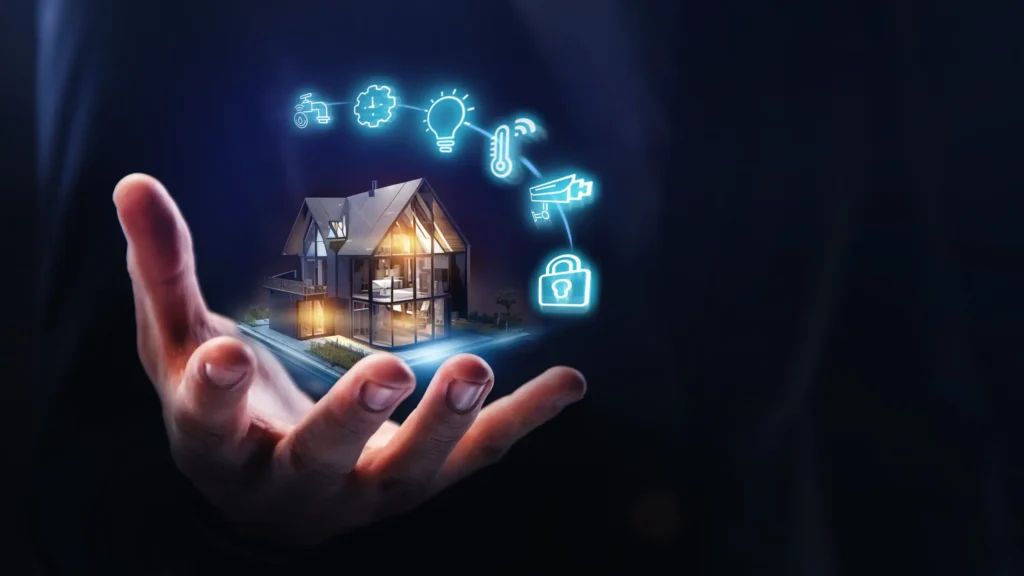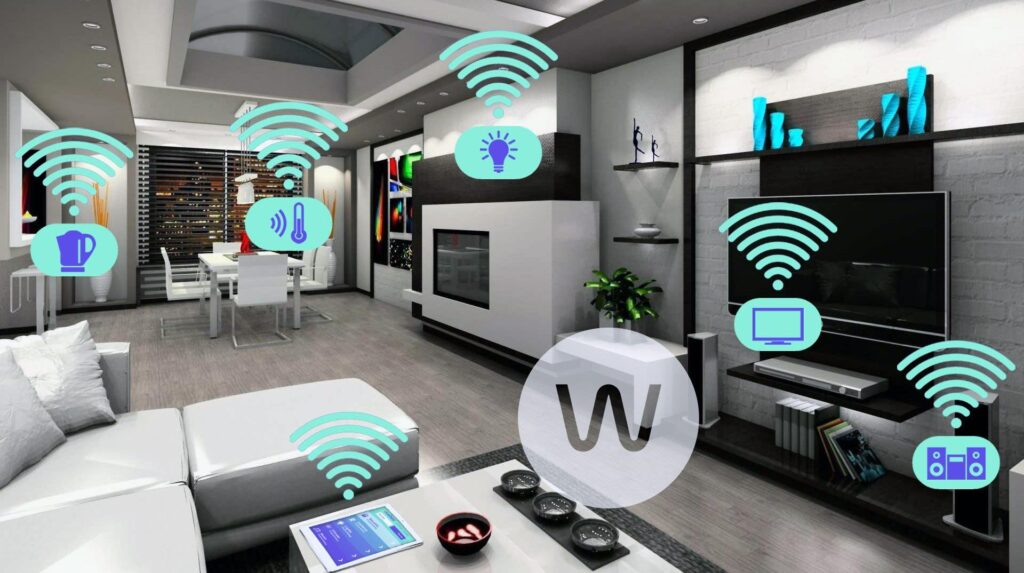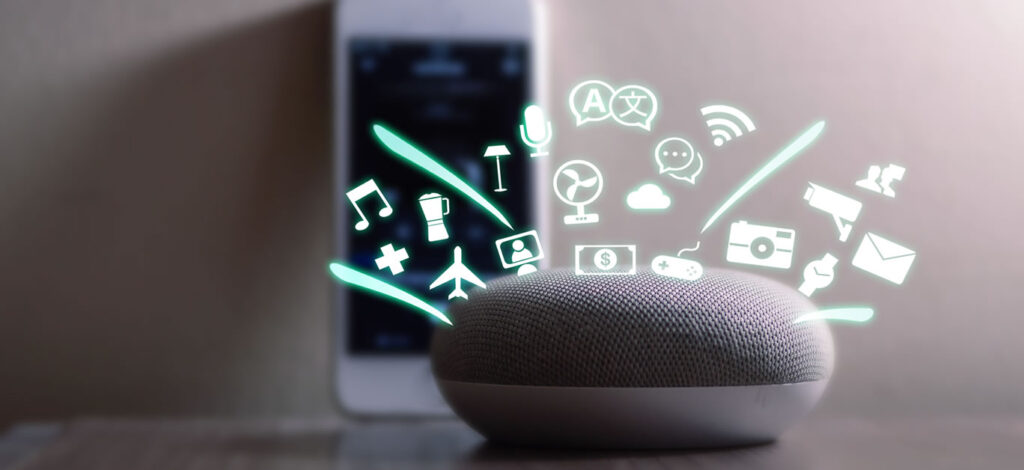
Imagine controlling your lights, security cameras, appliances, and even your energy consumption—all from your smartphone. Sounds futuristic, right? Well, the future is already here. Smart homes in Pakistan are rapidly transforming the way we live, and they are set to become one of the biggest lifestyle trends in the coming years.
From luxury villas in Karachi to newly built houses in Lahore and Islamabad, home automation in Pakistan is no longer a distant dream reserved for the elite. Thanks to advancements in smart home technology, falling prices of devices, and growing awareness, Pakistani households are increasingly embracing this innovation.
The Rise of Smart Homes in Pakistan
Globally, the smart home market is projected to surpass USD 260 billion by 2030 (Statista, 2024). Pakistan is catching up fast, especially as urbanization and digital penetration rise. According to PTA (Pakistan Telecommunication Authority), over 127 million people use mobile broadband in Pakistan. This internet boom is fueling the adoption of smart home devices connected via Wi-Fi and mobile apps.
Moreover, with increasing energy costs, frequent power outages, and security concerns, Pakistani families are realizing that smart living in Pakistan is not just about convenience—it’s about efficiency, safety, and savings.
Benefits of Smart Homes
Here’s why people are moving towards a smart lifestyle in Pakistan:
1. Energy Efficiency & Cost Savings: Electricity bills are a major concern for households. With smart lighting, motion sensors, and automated appliances, you can reduce unnecessary usage. Imagine your AC turning off automatically when no one is in the room or your lights dimming at sunrise—this isn’t just convenience, it’s real savings every month.
(Read more about how solar integration enhances this trend in our blog: Smart Home Solar Automation in Pakistan)
2. Security & Peace of Mind: Pakistan faces rising concerns about theft and burglary. That’s why smart security systems in Pakistan—like motion detectors, smart door locks, and CCTV cameras connected to your phone—are becoming popular. You can monitor your home in real-time, even while traveling abroad.
3. Convenience & Lifestyle Upgrade: Who doesn’t like controlling everything with a single click? Smart homes let you manage appliances, music, curtains, and even kitchen gadgets with a voice command. It’s like living in a science fiction movie—but in reality.
4. Health & Comfort: Smart air purifiers, water quality monitors, and temperature control systems ensure a healthier environment. This is especially valuable in cities like Lahore and Karachi, where pollution and heat are serious issues.
5. Increased Property Value: Houses equipped with smart home technology in Pakistan are already being seen as premium investments. Builders and developers are now offering smart home automation trends in housing societies to attract modern buyers.
Smart Home Devices You Should Know About

Here are some trending devices making homes smarter:
- Smart Speakers & Assistants (Google Home, Alexa) – Voice control for everything.
- Smart Lighting Systems – Motion-based, energy-saving lights.
- Smart Security Cameras & Locks – Remote monitoring, digital access.
- Smart Thermostats & AC Controllers – Save energy, stay comfortable.
- Smart Kitchen Devices – Automated coffee makers, ovens, and refrigerators.
- Smart Solar Systems – Combine renewable energy with home automation for ultimate efficiency.
Challenges for Smart Home Adoption in Pakistan
Of course, every trend comes with challenges. The future of smart homes in Pakistan depends on overcoming these hurdles:
- High Initial Costs – While prices are falling, some advanced systems are still costly for middle-class families.
- Awareness & Education – Many people are unaware of the full benefits of smart living in Pakistan.
- Internet Dependence – Smart systems rely on stable Wi-Fi, which can be inconsistent in some areas.
- Cybersecurity Risks – Protecting smart devices from hacking is essential.
The Future of Smart Homes in Pakistan
Despite the challenges, the trend is unstoppable. Here’s why:
- Government Push for Digital Pakistan – Initiatives to digitize the economy indirectly support smart technologies.
- Falling Prices of Devices – Just like smartphones, smart devices are getting more affordable.
- Integration with Renewable Energy – As solar power becomes common, smart home solar automation will dominate.
- Young, Tech-Savvy Population – With 64% of the population under 30, Pakistanis are quick to adopt new tech.
Experts believe that within the next 5 to 7 years, smart home adoption will shift from being a luxury to becoming a mainstream necessity in Pakistan.
Simple Example: A Day in a Pakistani Smart Home

Let’s imagine:
- You wake up, and your curtains open automatically with the sunrise.
- Your geyser is pre-heated because you scheduled it on your phone.
- The AC turns off when you leave the room.
- Your solar system adjusts power usage between the grid and battery.
- At work, you check live camera footage to see that your kids are safe.
- When you return home, the gate opens automatically as your car approaches.
This is not the future—it’s the present of smart lifestyle Pakistan.
Conclusion: Smart Homes Are Here to Stay
The journey towards smart homes in Pakistan has already begun. From saving electricity and improving security to offering unmatched convenience, smart home automation is redefining modern living.
Just like mobile phones transformed communication in Pakistan, smart homes will revolutionize the way we live within the next decade. The only question is: will you be an early adopter or wait until it becomes the norm?
Ready to explore the world of smart homes? Let’s make your home smarter with JS Technology—your trusted partner in home automation and solar integration.







